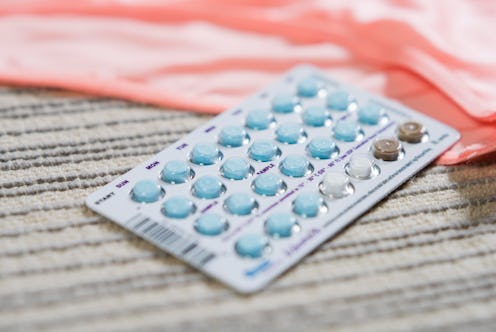
There's strong evidence that another way to get contraceptive pills could be hugely beneficial, a new study finds. Making oral contraceptive pills available over the counter — for adult women and teenagers— would have a great number of benefits without any demonstrable drawbacks, says research in the Journal of Adolescent Health.
The team, lead by researchers from Johns Hopkins, studied a huge range of available data, especially its relationship to teen contraceptive use. They looked at data on the safety and effectiveness of oral contraceptives, pregnancy risk, teen ability to use oral contraceptives correctly, teen decision-making skills in relationship to contraception, how it could impact sexual behavior, and how over-the-counter access would affect counseling opportunities.
"Our paper focuses on whether teens should be treated differently from other women with regard to over-the-counter access to oral contraceptive pills. We concluded that there is no scientific rationale for treating teens differently from other women," Krishna Upadhya, M.D., M.P.H., assistant professor of pediatrics at the Johns Hopkins University School of Medicine and the paper’s lead author, tells Bustle.
"Up till now, no one has submitted an application to the FDA to make the switch. Recently, however, a pharmaceutical company did announce a partnership with Ibis Reproductive Health to start the FDA process so an over-the-counter oral contraceptive may become available in the United States in the future." It could be a total game-changer, especially if it was made available for to teenagers.
"I am very concerned about many teens and women losing access to essential healthcare services, including contraception, as a result of proposals such as the American Health Care Act."
Personally, it would have saved a lot of awkward and confused phone calls to my doctor when I was a teenager— and for a lot of my friends as well. I didn't have a single friend who wasn't having sex because they couldn't get the pill, I just had friends who weren't having safe sex because of it.
Overall, they found that there is “no scientific rationale” for restricting over-the-counter birth control based on age. Concerns are, as they always are, about the behavioral consequences of giving teens access to over-the-counter birth control. There seems to be this fear that giving teenagers birth control access would mean that they would suddenly start engaging in risky behavior— or just having a lot more sex. But teens have sex. That's just a fact. The Center for Disease Control and Prevention has found that the average age to lose your virginity is 17. And a lot of teenagers have sex younger than that. This research shows that access to birth control wouldn't make teens more sexually active, it would just make the sex safer.
And with the current political climate around contraceptives and potential defunding of Planned Parenthood, this data couldn't come at a more pertinent time. "While I am not an expert on politics, as a physician who provides reproductive healthcare, I am very concerned about many teens and women losing access to essential health care services, including contraception, as a result of proposals such as the American Health Care Act," Upadhya says. "Over-the-counter contraception would provide one effective contraceptive option for women who aren't able to access a clinic or don't have insurance."
"Over-the-counter status won't solve the access problem, however, unless women can afford the product"
That being said, however, there are would still be huge barriers that need to be dealt with. "Over-the-counter status won't solve the access problem, however, unless women can afford the product," Upadhya says. "Additionally, while oral contraceptive pills are safe and effective, many women may prefer other contraceptive methods, including implants or IUDs which will still require a clinic visit. Continued funding for family planning clinics and insurance coverage for contraception will remain critical to ensuring access to contraception."
There are still big problems around getting affordable, easy access to contraceptives. But admitting that teens have sex and are already making big decisions about their bodies is the first step towards giving them the sexually health autonomy they deserve — and hopefully making them healthier in the process.